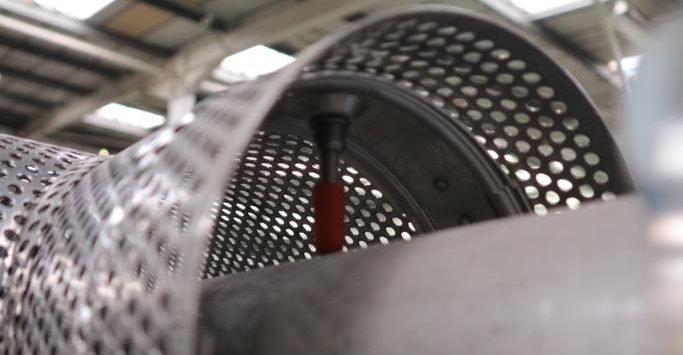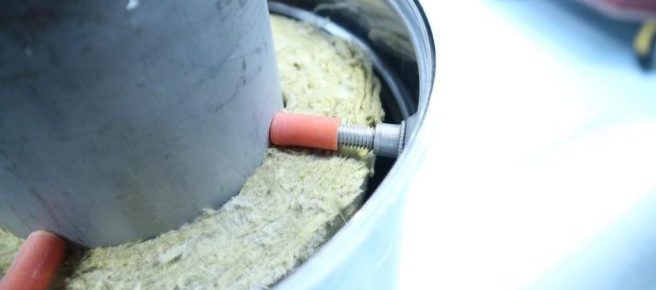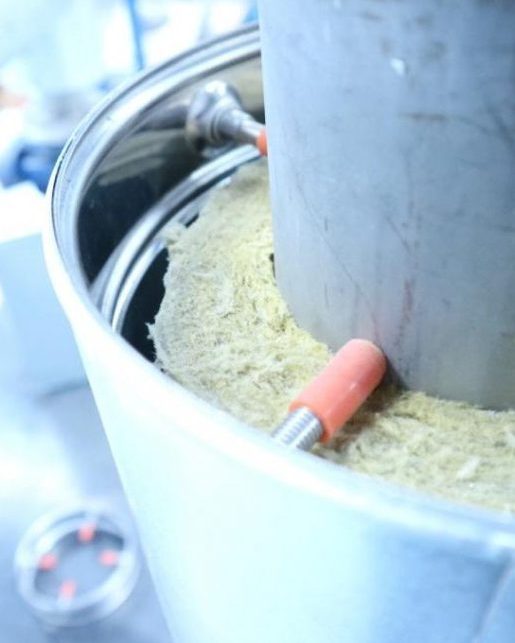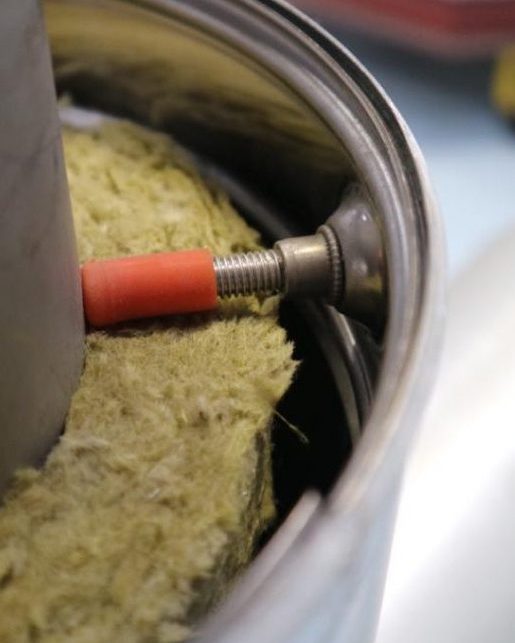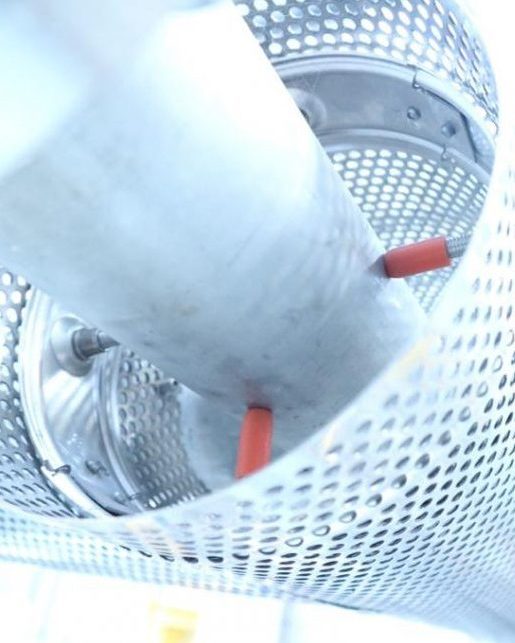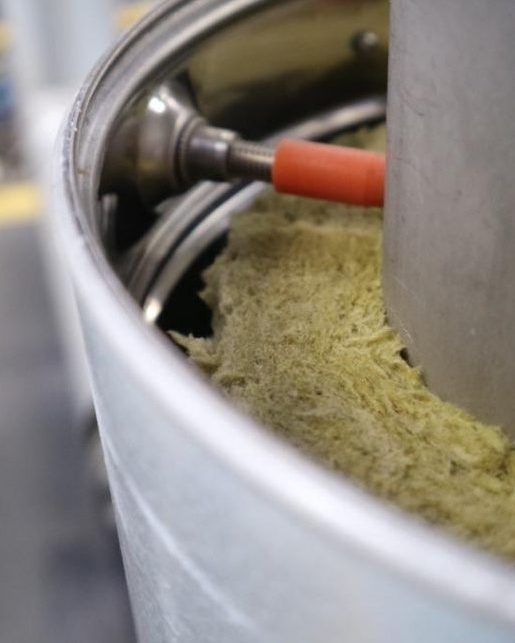The Space-Ring System (SRS)
A Revolutionary Solution That Combats Corrosion Under Insulation (CUI)
Our patented design reduces damage to the cladding surface, whilst providing airflow and drainage from within, keeping pipes dry and safe from the threat of CUI. Learn more about CUI >>
The Space-Ring System uses support rings to transfer the weight load onto the underlying asset itself. This provides a substantially stronger base to support the weight load of the cladding, in comparison to the typically soft often friable insulation material. Significantly strengthening the insulation system, improving its resistance to damage, preventing seams from buckling and, in turn, moisture entering the system.
In addition, the air space introduced allows free flowing air and the internal surface of the cladding acts as a gutter, helping to keep the pipe and surrounding insulation dry.
WHY WE DEVELOPED THE SRS
Powertherm is a specialist insulation contractor. We are committed to supporting the industries we operate in through developing innovative solutions and focusing on improving safety. Our teams work with pipelines and equipment, installing insulation systems everyday: it’s what we do. Consequently, we know and understand the issues operators face and recognise the weaknesses in traditional systems.
The energy sector is transitioning and client assets are ageing. As such we know clients need to pro-long asset life cycles and reduce costs to ultimately maximise value and remain competitive. CUI is a major contributor to costs, whether that be directly through inspections and maintenance or indirectly through operational downtime, none of which are preferred for asset owners and operators.
It is said 60% of pipeline failures are due to the effects of CUI. So we asked ourselves the questions: what can we do? and what is the real reason CUI occurs?
WATER INGRESS
Either through damage to an insulation system or due to unavoidable operating conditions
NO WATER = NO CORROSION
“CUI is a product of wet metal exposure duration, the insulation system that holds the least amount of water and dries most quickly should result in the least amount of corrosion damage to equipment.” – NACE
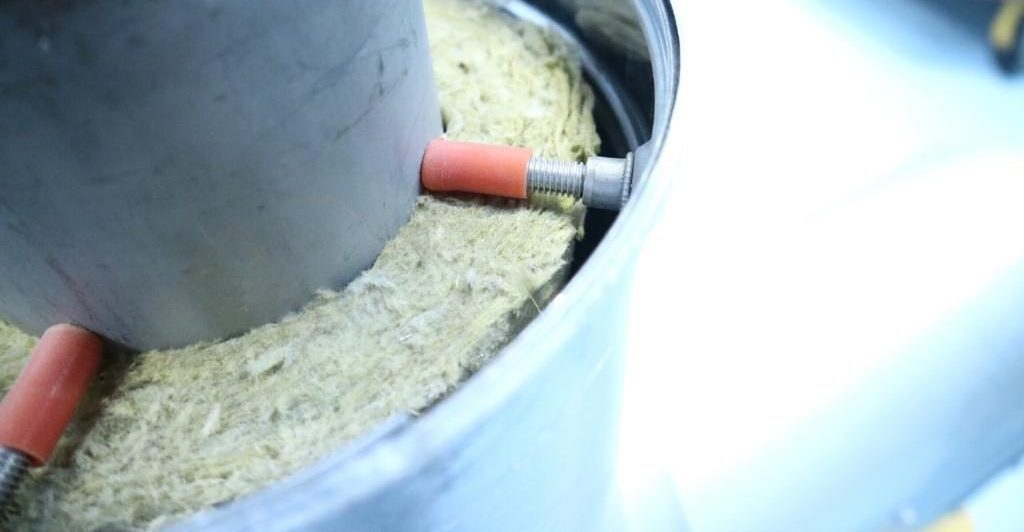
Systematic, Engineered Design: Delivering Unique Benefits
SUPPORT RINGS – increases the mechanical strength of the insulation system: significantly reducing potential damage to cladding, keeping insulation systems water tight.
AIR GAP – keeps insulation materials dry: CUI occurs when moisture which has been contaminated within insulation materials, meets the surface of insulated equipment. The air gap created by the SRS, allows increased airflow around the system, keeping insulation materials and assets dry. In certain situations insulation thicknesses can be reduced as the increased warm air flow around the system, due to the air gap provided by SRS, acts as a proficient insulant. The air flow also prevents condensation forming within the system, rather than it wicking through the insulation material like in traditional systems.
GUTTERING – keeps any moisture ingress away from assets: due to the air gap, the internal surface of the cladding acts as gutter, keeping moisture, that unavoidably builds up from operating conditions, away from assets.
DRAINAGE HOLES – allow moisture to escape: Keeping insulation systems dry and protecting them from the threat of CUI.
THERMAL EXPANSION – the SRS uses support rings which are held in place by silicone capped bolts. These silicone caps allow for movement and act as a heat break. So as the diameter of the pipe increases the SRS allows for thermal expansion. In comparison to end caps, the SRS has no sharp edges, meaning no damage will occur to any applied coatings system. In turn the coating system isn’t eroded, resulting in no direct metal to metal contact, meaning galvanic corrosion cannot occur. Also, as the pipe begins to cool and contract, the allowance for thermal expansion means the support rings stay securely in place.
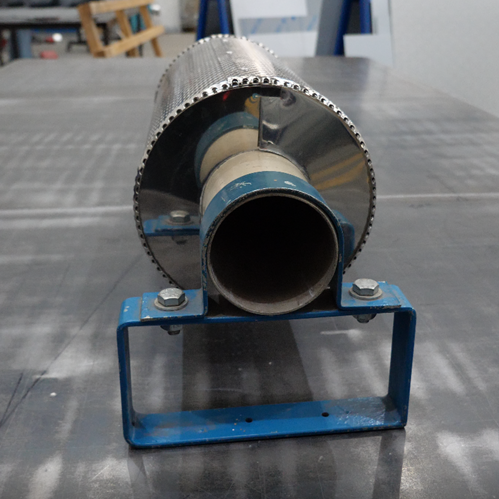
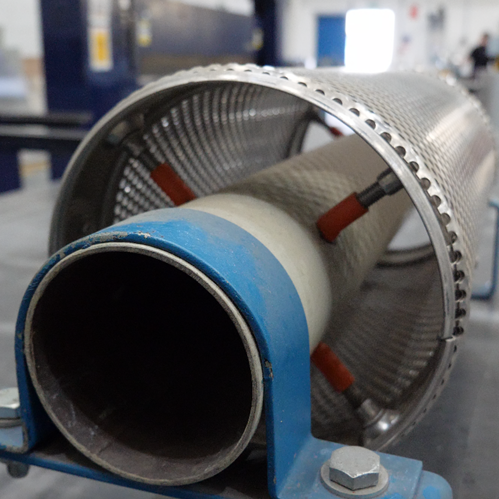
MODULAR DESIGN – allows the SRS to be installed on non-insulated piping for personnel protection guards. It is unrivalled in performance, offering a unique fit to perforated cladding installation.
INSPECTIONS & MAINTENANCE – are quick, easy, and cost-effective: when compared to more commonly having to remove insulation and cladding from a full length of a pipeline, the SRS is a much more efficient solution as it allows for part removal. The modular design of the SRS means that specific sections of pipe cladding and insulation, particularly where the risk of cui occurring is higher, can just be removed.
This is particularly beneficial for areas which are at an increased risk of CUI and require regular inspections and maintenance. Part removal leaves other sections of the insulation system undisturbed and sealed, protecting them from the surrounding environment. A common problem during removal of cladding and insulation is the insulation material slipping. This often results in poor reinstatement, leaving the system open to the environment and the threat of CUI. The mechanical fix of the SRS prevents insulation from slipping, particularly on vertical rows which require regular inspections.
INSTALLATION – the SRS is installed with the standard tools carried by an insulation engineer, and requires very little additional installation training. The two sections of the support rings are held in place with pop rivets and the bolts screwed into place. Support rings are usually installed at 500mm centres along a pipeline but this, however, is subject to specified requirements.
MATERIAL SPECIFICATION – the support-rings, threaded rivets, and spacer screws can be supplied in 304 or 316 stainless-steel grades. This means they are themselves corrosion resistant. Where dissimilar metal corrosion (Galvanic corrosion) is a concern, materials such as glass webbing tape can be applied to the outer surface of the support-ring, between the SRS bracket and the external metal cladding.
The protective caps that are on the end of the spacer screws are made of silicone. They provide a heat barrier, significantly reducing thermal bridging, and allow for thermal expansion. For extremely high temperature situations, an additional protective barrier can be applied between the spacer screws and the underlying asset. This can be achieved using materials such as glass webbing tape or Pyrogel, which provide a suitable heat barrier and protect the integrity of the insulation system and underlying asset.
APPLICATION – SRS can be installed on any size diameter piping from small bore too much larger sizes. IT can also be installed on square ducting, and for vessels and tanks.
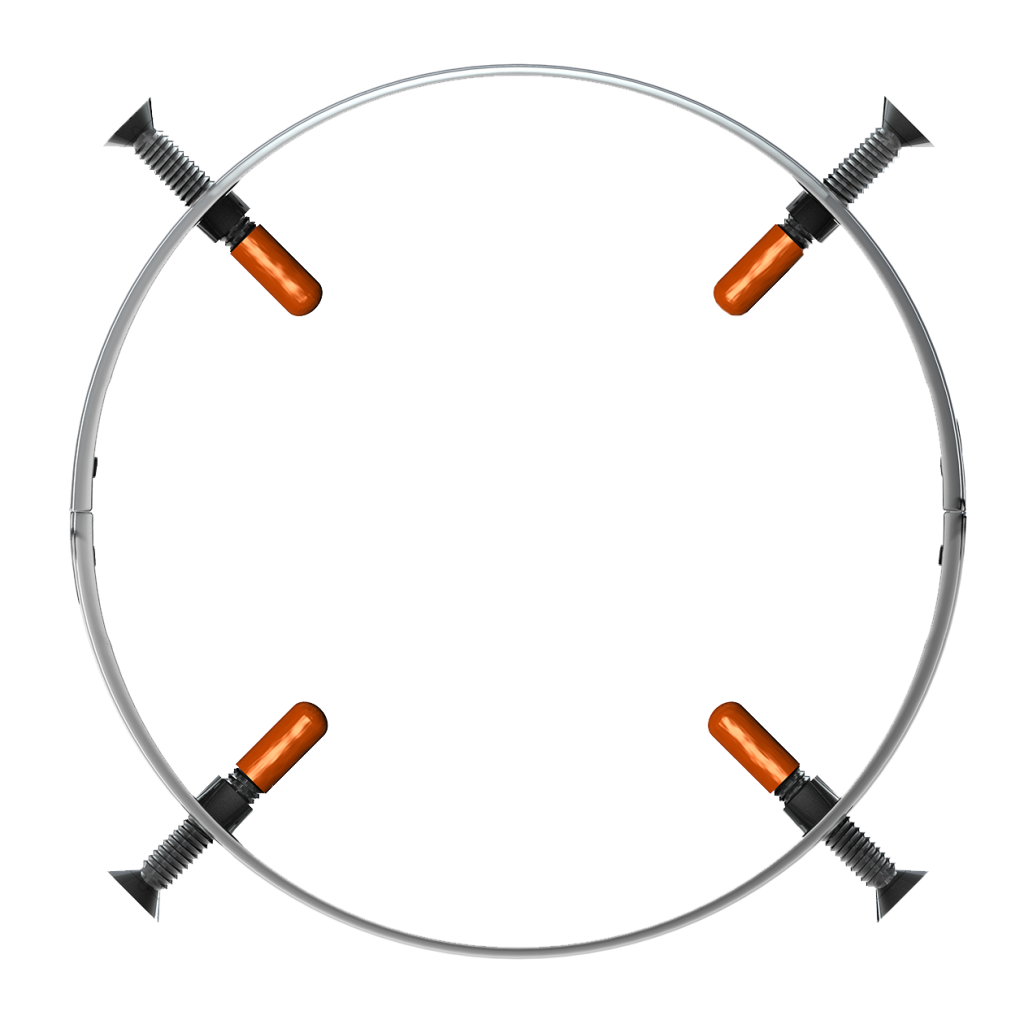
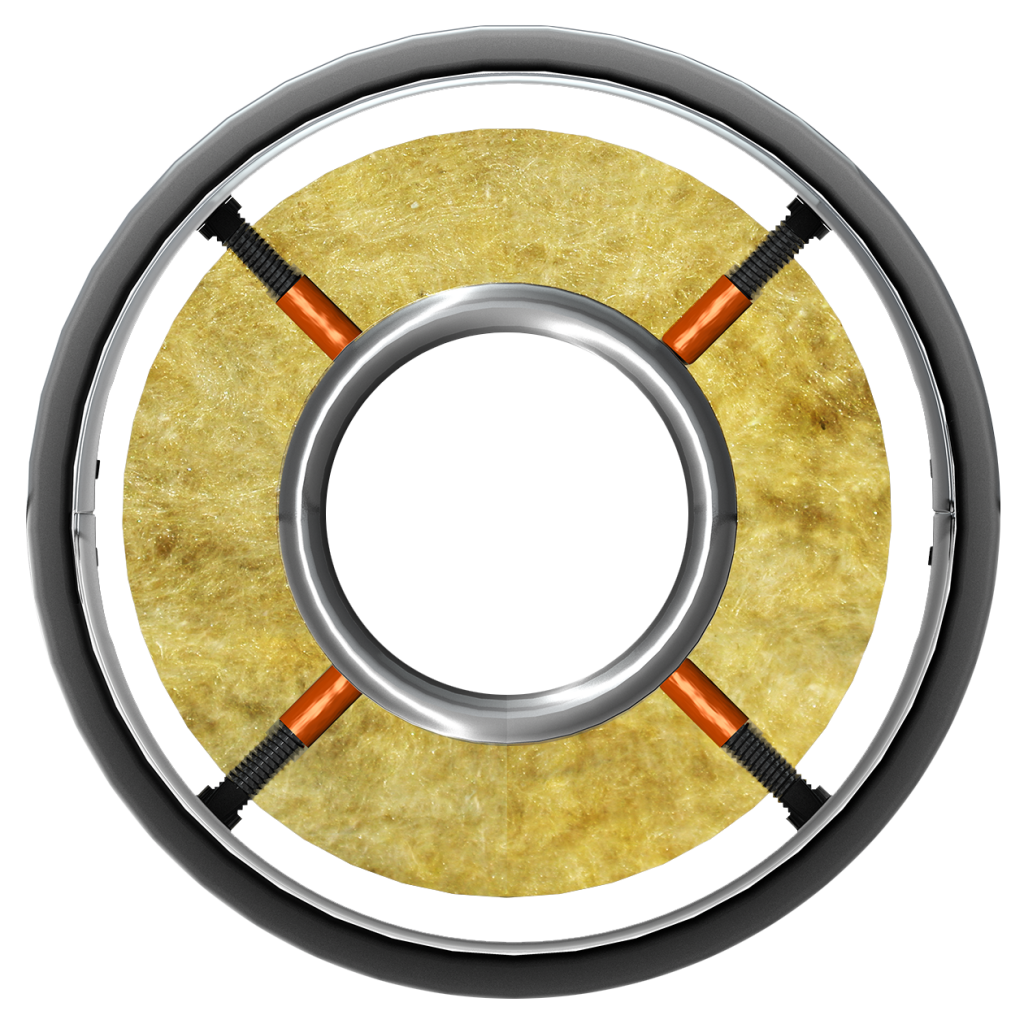
ROPE ACCESS – the SRS is rope access friendly: with SRS installed rope access teams can be utilised for inspections and maintenance procedures, due to part removal of an insulation system. This means operatives have less materials to handle and replace, and disruption of the insulation system is minimised, reducing the risk of CUI due to exposure of the system. This is also beneficial in hard to access areas where installing a scaffold may not be possible.
SUSTAINABILITY – engineered to be re-applied: the modular design of the SRS allows it to be applied, removed and reapplied where required, reducing wastage and associated costs.
PRE-FABRICATION – the unique engineered design of the SRS means sections of piping and insulation systems can be pre-fabricated off-site. This allows for quick and easy maintenance, reducing operational downtime, as pipe sections which require maintenance can be planned and delivered to site on-time. Pre-fabrication also reduces potential damage to fabrications, both in transit and on-site. Damaged, and poorly installed cladding can result in open seams and in turn CUI problems. There’s also a reduced risk of water ingress and contamination with off-site pre-fabrication.
NON-INVASIVE – SRS works alongside other CUI mitigating solutions; closed cell and water repellent insulation materials, specialist coatings such as thermally sprayed aluminium, NDT testing, and other monitoring / detective CUI related systems can be used for a comprehensive system. The bolts can be pushed through insulation materials, meaning no gaps are present between the insulation.
Innovative Personnel Protection Guards (PPG)
There are times when hot piping doesn’t require the installation of an insulation system. This could be that the hot piping needs to lose heat for process reasons, or it could be determined that the risk from corrosion under insulation is so severe that the associated financial costs of leaving the piping uninsulated is an acceptable one. Learn more about CUI >>
On these occasions, the modular design of the Space-Ring System allows it to be installed on non-insulated piping. The system transfers the weight load of the cladding to the underlying pipe, which is substantially stronger than cladding. As a result, it’s a much safer solution for personnel protection requirements. Thermal bridging is also reduced due to the minimal contact of the hot surface.
Withstanding Rigorous Testing
The Space-Ring System (SRS) has already undergone rigorous testing and we continue to do so to further cement the capabilities of the system.
Energy Survey Testing
Rockwool Technical Insulation took the SRS through a series of tests focusing on the surface temperature of cladding with and without the SRS installed.
Measurements were taken, using site survey tools, either side of a reducer in the cladding to compare performance of each system (traditional & the SRS).
The results of the test found that the temperature of the cladding surface was just 0.1°C different between the two systems with the SRS 9 W/m lower for heat loss.
Strength Testing
The SRS is currently undergoing strength testing by engineers at Sheffield Hallam University. Results to come.
Corrosion Testing
The SRS is currently undergoing corrosion testing by engineers at Sheffield Hallam University. Results to follow.
The Ultimate CUI Protection System
We are proud to offer the most comprehensive CUI service. Our team of experts provide specialist advice, support, and innovative services to combat CUI. Your specification is unique: our experts work in collaboration to design the insulation system for you.
From gases and vapours to liquids, pipelines transport all kinds of substances at extreme temperatures. Some pipelines need to lose heat for process reasons, others need insulating for protection from the environment. Some may require an insulation system designed to meet personal protection requirements.
Powertherm gives you peace of mind and transparency of the integrity of your assets through our individually tailored CUI service.
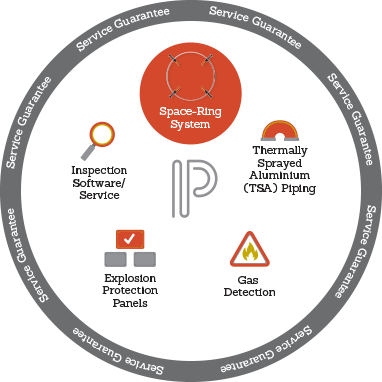
Specialist Coatings
Our in-house specialist coatings division has the expertise and skills to apply all types of protective coatings that contribute to mitigating CUI. Thermally sprayed aluminium (TSA) is an incredibly durable coating that has the capabilities to prolong asset life-cycles due to the increased resistance of the effects of CUI. For more >>
Gas Detection
As part of the development of the Space-Ring System, a gas detection device can be installed within the system for applications where hazardous elements are present. The gas detection device allows hazardous gases to be detected before they become a safety hazard. The device warns site personnel of a leak at a given point in a pipeline. The leaking pipeline can be shut off, inspected, and repaired before the point of failure, where an explosion could occur. Such a proactive action reduces the risk of catastrophic consequences from the effects of corrosion under insulation.
Explosion Panels
The Space-Ring System can be installed on many different pipelines. For installations where hazardous gases are involved, explosion panels can be designed into the cladding surface. This addition to the system works by purposely manufacturing weak spots in the cladding, allowing for a controlled explosion, driven away from personnel and other equipment. In turn, this approach minimises disastrous outcomes from an explosion, due to a failure in a pipeline from the effects of corrosion under insulation.
Inspection Software and Service
Part of the system includes a software package specifically designed to give transparency of the integrity of assets. When carrying out inspections and maintenance work, an operative scans a RFID tag ensuring data is recorded and reported to plant personnel to allow a proactive treatment of potential problems.
SUMMARY
The Space-Ring System (SRS) is a simple yet effective system that works with, not against, other CUI mitigating solutions. SRS works by addressing the real reason CUI occurs: water ingress, by increasing the mechanical strength of an insulation system, helping to keep systems water tight. And by increasing the free flow of air through the system, due to the introduction of an air gap, combating condensation created from operational conditions.
The increased resistance to damaged of the SRS, coupled with it’s ability to prevent, track and mitigate CUI, and improved efficiencies help bring significant short-term and long-term cost savings, improving the sustainability of client assets. For applications on non-insulated equipment for personnel protection requirements, SRS is unrivalled in its performance.
As well as SRS helping to prevent, track and mitigate CUI the system can bring other benefits to industry:
- Significantly reduce health and safety risks
- Substantially improve asset integrity and reduce costs
- Prolong asset life-cycles and reduce waste
- Reduce environmental impact from substance leaks due to the effects of CUI
